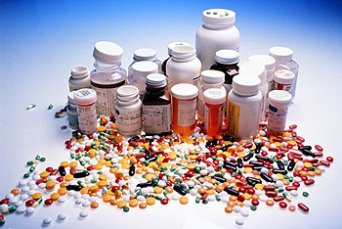- About
- Topics
- Picks
- Audio
- Story
- In-Depth
- Opinion
- News
- Donate
-
Signup for our newsletterOur Editors' Best Picks.Send
Read, Debate: Engage.

| located: | USA, Uruguay, Portugal, Philippines |
|---|---|
| editor: | Shira Jeczmien |
The airplane hanger vibrates with cheering supporters, “Make America Great” slogans dot through the background and in the foreground: Donald Trump. In a rambling 72 minute speech to supporters in Pennsylvania on March 10, President Trump reiterated that the U.S. should impose the death penalty to drug dealers as a measure to tackle the rising opioid crisis in the country. Inspired by policy ideas he’s picked up along his worldly travels, Trump looks to leaders of countries such as China, Singapore and the Philippines, all of which apply capital punishment to drug traffickers.
“When I was in China, and other places by the way, I said, ‘Mr. President, do you have a drug problem?’, ‘No, no, no, we do not.’” Irrelevant murmur continues until Trump adds, “I asked, ‘what do you attribute that to?’, ‘the death penalty’”. The crowd bursts into self-pleasing laughter. This is not the first time Trump has called for executing drug dealers; earlier this month he made similar remarks during a White House summit on the opioid crisis, following which the Washington Post reported that the Trump administration is studying a new policy that would allow prosecutors to seek the death penalty for drug dealers.
Instead of looking to countries that have successfully reduced their drug crisis, such Portugal or more recently Uruguay, Trump insists to blindly praise the ‘so-called’ success stories of tyrannical leaders who have used repression, scare tactics and the threat of death to impose aggressive drug reform. In Trump’s words, “The only way to solve the drug problem is through toughness.” The Philippines President Rodrigo Duterte, who Trump claims “has done an unbelievable job on the problem” is currently under investigation by the International Criminal Court, with claims that Duterte has committed crimes against humanity by overseeing the execution of between 8,000 to 20,000 people in his ‘war on drugs’.
Through decriminalisation of the consumption and possession of all illicit drugs in 2001, Portugal saw the rates of drug related deaths plummet by more than 85%, heroin abuse reduced three fold and the spread of HIV infections go down from 104 new cases per million in 2000 to 4.2 in 2015. Following closely in its footsteps was the then Uruguay President José Mujica, who led the country to legalise and regulate Cannabis in 2013, a drastic move in a bid to reduce drug crime, deaths and the footholds the cartels had on the country. “I’m scared by the drug trafficking, not by the drug,” Mujica said. 2016 saw the first pharmacies begin to sell cannabis in Uruguay.
By implementing tough drug laws Trump may instead create a more stable economy for the higher tier dealers and cartels operating within the U.S., whereby weeding out the dealers whose operation does not withhold aggressive drug law enforcement. In turn, prices of opioids will rise as a result of the higher risk while amateur competitor dealers will disappear from the market. As a response to Trump’s initiative, director of the Drug Policy Programme, Sanho Tree said “[drug dealers] thrive because we've done two things to help them: number one, we've picked off their competition for them, thereby opening up that economic space. Number two, by trying to restrict the supply of drugs on the street, the demand remains constant, thereby driving up their prices and profits.”
Mujica’s words resonate deeply; it has been proven time and time again that the illegal chain system behind the consumption of drugs is the problem, not the culture of drug consumption itself. Countries that legalise or decriminalise drugs while reform how their society looks at and supports addictive or recreational consumption proceed the failed rhetoric and destructive actions led by the benighted ‘war on drugs’.